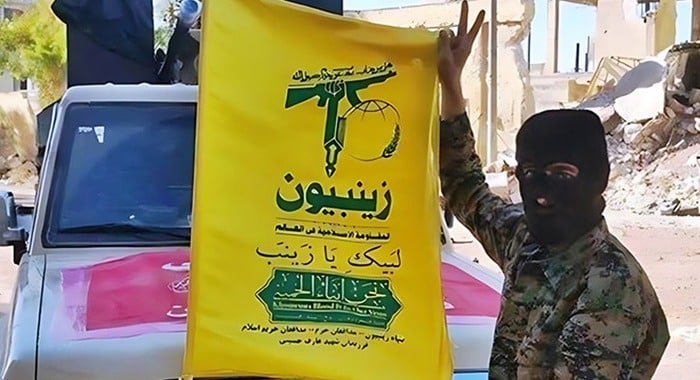On April 11, 2024, Pakistan proscribed the Iran backed Zainebiyoun Brigade and designated it a terrorist organisation a decisive move that reflects Islamabad’s urgent need to secure its domestic stability and manage the fallout of intensifying regional rivalries. Though the timing of the ban just a day after Iran’s Supreme Leader Ayatollah Ali Khamenei vowed retribution against Israel for bombing Tehran’s consulate in Damascus raised eyebrows internationally, the decision must be understood within the broader framework of Pakistan’s evolving national security priorities and its uneasy relationship with Tehran.
The Zainebiyoun Brigade, often dubbed “Hezbollah Pakistan,” has long been a source of concern for Pakistani authorities. Comprised largely of Pakistani Shia fighters, the brigade has served as an Iranian proxy force in Syria and beyond. Since its formation, it has recruited thousands from Shia-majority regions in Pakistan, including Parachinar, Karachi, Gilgit, and Quetta. Motivated by a mix of ideological loyalty and financial incentives monthly salaries ranging from $500 to $700, these fighters were dispatched to foreign battlefields, primarily to defend Iranian interests.
This isn’t a new concern for Islamabad. The government had previously outlawed other Iran-linked Shia militant groups such as Ansar-ul-Hussain in 2016 and its offshoot, Khatam-ul-Anbia, in 2020. Both groups were accused of exploiting Shia pilgrimage routes to recruit Pakistani men for combat in Syria. In one intelligence report from 2017, authorities revealed that 4,000 Shia pilgrims who travelled to Iran between late 2016 and mid-2017 never returned—many suspected of joining the Zainebiyoun ranks. In just six months in 2018 alone, the group reportedly enlisted more than 1,600 Pakistani Shias.
While critics have occasionally interpreted Pakistan’s crackdowns on Iran-backed groups as aligning with Western or pro-Israel sentiment, such claims overlook the strategic calculus at play. The state’s concerns are not ideological but rooted in hard security realities. A surge in Zainebiyoun activity within Pakistan could stoke sectarian tensions and exacerbate an already volatile domestic landscape. In a multi-sectarian nation where Sunni-Shia relations have long been fragile, the influx of ideologically driven, battle-hardened militants returning from the Middle East presents a dire threat.
This fear is not hypothetical. In recent years, Zainebiyoun operatives have been implicated in multiple plots inside Pakistan. In the aftermath of Iran’s missile strikes on Pakistani soil in January 2024—and Islamabad’s swift retaliatory response the Counter Terrorism Department (CTD) arrested a suspected Zainebiyoun member, Syed Mohammad Mehdi, linked to the 2019 attempted assassination of prominent Islamic scholar Mufti Taqi Usmani. Usmani narrowly escaped the attack, which many believe was aimed at igniting sectarian unrest.
Such arrests are not isolated incidents. In 2021, CTD officials apprehended Syed Zakir Raza an Iranian-trained militant long on the department’s most-wanted list. A month earlier, his associate Abbas Jafri was detained for similar activities. And in late 2020, two additional Zainebiyoun members were arrested in Karachi for their roles in a string of targeted killings stretching over six years. These incidents underline the persistent operational footprint of the group in Pakistan.
Further complicating the picture is the role of religious charities allegedly functioning as recruitment fronts. The Quetta-based Noor Foundation, cited by Pakistani intelligence as a conduit for Iranian influence, has been under scrutiny for covertly aiding the IRGC’s recruitment and propaganda efforts. These organisations not only facilitate recruitment but also propagate narratives that deepen sectarian divides, fostering long-term instability.
Given this backdrop, Pakistan’s decision to ban the Zainebiyoun Brigade was less a political alignment and more a calculated risk management strategy. Had Pakistani nationals affiliated with the brigade been involved in retaliatory strikes on Israeli or American targets, the diplomatic and reputational costs for Islamabad could have been severe. Moreover, allowing such groups to operate freely would have created fertile ground for sectarian polarisation, potentially tipping the country toward internal conflict.
Yet the ban, while symbolically potent, may only go so far. As seen in the case of Tehreek-e-Taliban Pakistan (TTP) banned since 2008 but still operational designation alone does not guarantee containment. The Zainebiyoun Brigade, with its deep networks and external sponsorship, may attempt to re brand or operate through proxy fronts to evade restrictions.
In sum, Islamabad’s decision was neither pro-Western appeasement nor anti-Iranian posturing. It was a pragmatic response to an evolving security threat. With Iranian-Israeli tensions climbing and proxy groups gaining transnational reach, Pakistan is walking a tightrope. It must balance regional diplomacy with internal cohesion, while ensuring that its territory is not used as a launchpad for external conflicts.
The Zainebiyoun Brigade’s trajectory in Pakistan illustrates the complexities of modern proxy warfare. As Islamabad sharpens its counter terrorism policy, it must complement proscription with surveillance, de-radicalization, and diplomatic engagement not just to neutralise threats, but to prevent the next generation of proxy fighters from emerging within its own borders.





